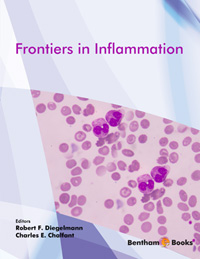Abstract
Inflammaging is a term referring to the constitutive low-grade inflammation that underlies the process of aging. The causes of inflammaging stem from an upregulation of the innate and a decline in the adaptive immune systems and involve chronic induction of the production of inflammatory mediators, including cytokines, chemokines, and bioactive lipids. Damaged DNA and protein that accumulate in the cells of the aging organisms, oxidative stress, and changes in the function of adipose tissue are among the key culprits leading to the onset of inflammaging. Changes in cytokine signaling pathways at cellular levels also occur with aging, contributing to propagation of inflammation. The inflammaging is considered the main contributing factor to the development of various aging-associated diseases, including cancer, atherosclerosis, metabolic, and neurodegenerative diseases. At least in animal models, inflammaging is subdued by common anti-aging therapies like caloric restriction and resveratrol.
Keywords: Adipose tissue, Bioactive lipids, Caloric restriction, Ceramide, Cytokine signaling, Inflammaging, Innate immune response, Interleukin 1, Oxidative stress, Resveratrol, Senescence, Tumor necrosis factor.






















